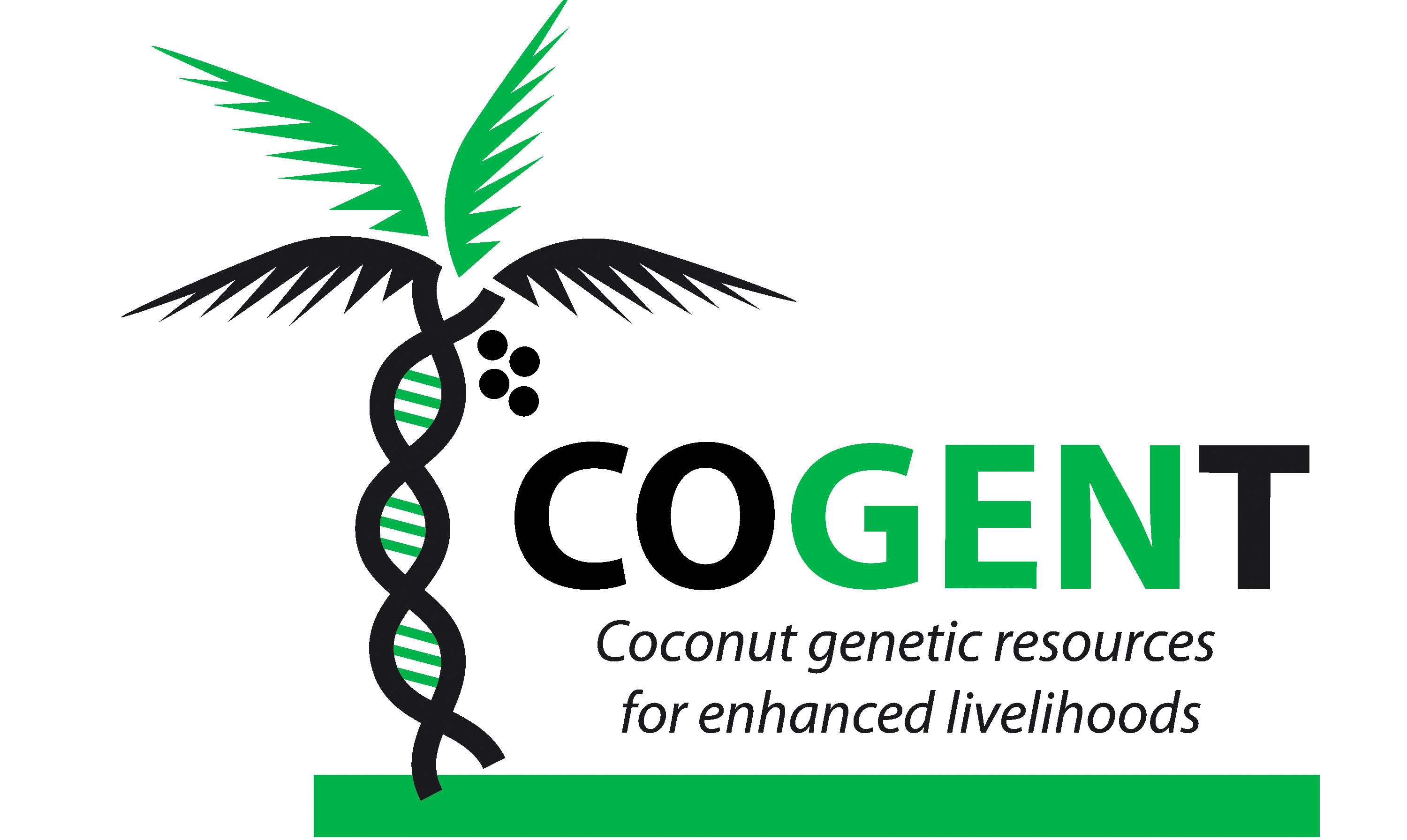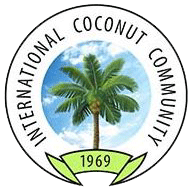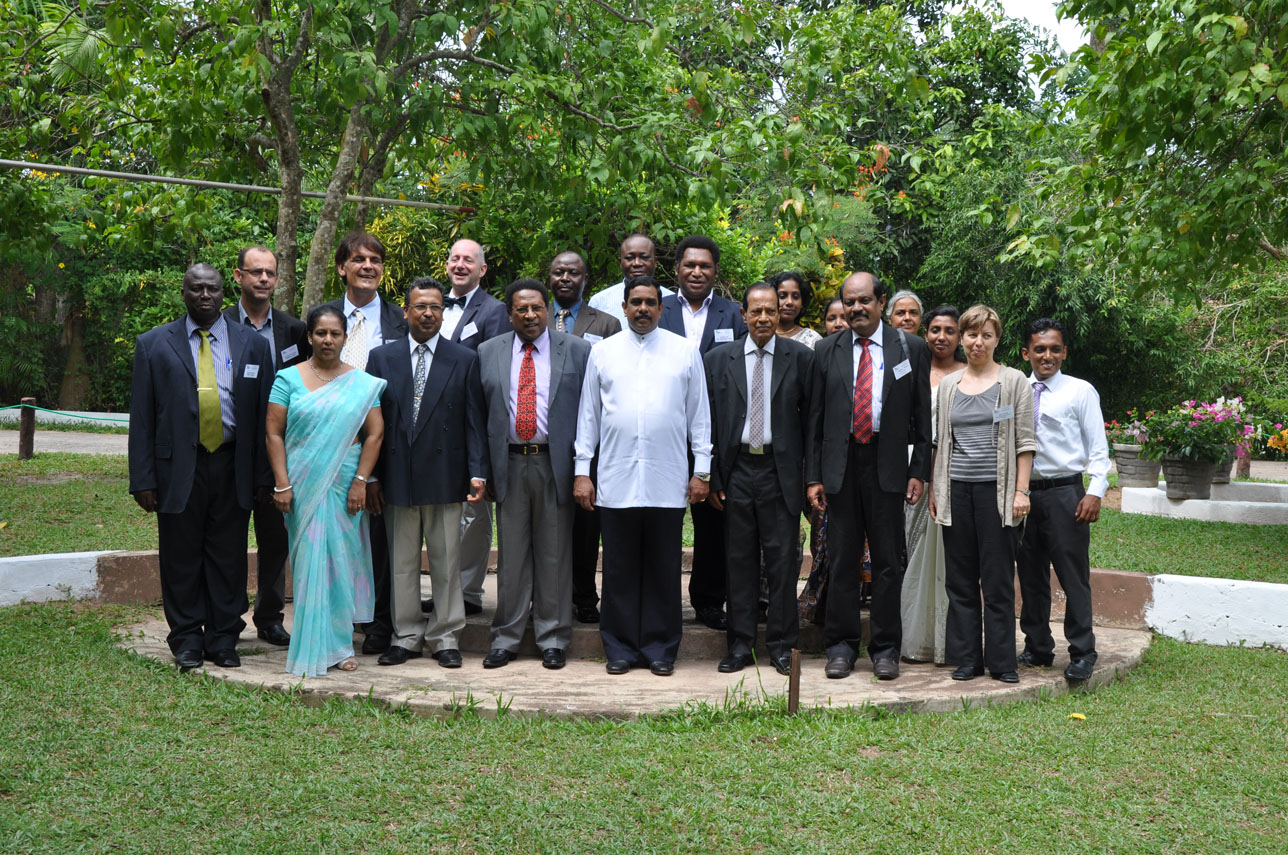About COGENT
Introduction to COGENT
The International Coconut Genetic
Resources Network aims to promote collaboration for the
conservation and use of coconut genetic resources. COGENT currently is made up
of 39 country members: Bangladesh, Benin, Brazil,
China, Colombia, Cook Islands, Costa Rica, Côte d'Ivoire, Cuba, Fiji, Ghana,
Guyana, Haiti, Honduras, India, Indonesia, Jamaica, Kenya, Kiribati,
Madagascar, Malaysia, Mexico, Mozambique, Myanmar, Nigeria, Pakistan, Papua New
Guinea, Philippines, Samoa, Seychelles, Solomon Islands, Sri Lanka, Sultanate
of Oman, Tanzania, Thailand, Tonga, Trinidad y Tobago, Vanuatu and Viet-nam.
Coconut, Cocos nucifera
L., is the 'tree of life'. Each part of the coconut palm can produce items
of value for the community. Coconut products provide food, shelter and energy
to farm households, and can be made into various commercial and industrial
products. Fully developed and strategically used it would increase food
production, improve nutrition, create employment opportunities, enhance equity
and preserve the environment. Coconut culture faces several problems that can affect
its production and competitiveness: low yield and yield security, unstable
markets for its traditional products, among others. Pests and diseases,
repeated natural calamities, ageing of palms and genetic erosion further
aggravate the dire situation.
Coconut-producing
countries lack both human and material resources to conduct expensive and
time-consuming research that could solve these problems. The world's research
community has recognized that international support is essential if coconut is
to be made more productive to benefit resource-poor coconut farmers. Genetic
resources have been identified as the most urgent and strategic area to
increase productivity and yield security.
On
the suggestion of the Consultative Group on International Agricultural Research
(CGIAR) and its Technical Advisory Committee, representatives of 15 coconut-
producing countries at an international workshop in Cipanas, Indonesia in
October 1991, recommended establishing an international coconut genetic
resources network. In 1992, Bioversity International, with the endorsement of
the CGIAR and its donors, established COGENT to promote an international
collaborative programme on genetic resources conservation and use.
Vision
COGENT's
goal is to improve coconut production on a sustainable basis and to increase
incomes in developing countries through improved cultivation of the coconut and
efficient utilization of its products.
Mission
COGENT
aims to develop and implement an international mechanism to coordinate research
activities of national, regional and global significance, particularly in
germplasm exploration, collecting, conservation and enhancement. It also aims
to establish a basis for collaboration on the broader aspects of coconut
research and development.
Objectives
The
Network will function at the national, regional and global levels to strengthen
the capacity of national programmes to conserve and utilize coconut genetic
resources.
More
specifically COGENT:
1.
Establishes and maintains an
international database on existing and future collections;
2.
Encourages the protection and use of
existing germplasm collections;
3.
Identifies and secures additional
threatened diversity by developing and adopting suitable technologies and
conservation strategies;
4.
Promotes greater collaboration among
research groups in producer countries and advanced technology sources in the
exchange of germplasm and the development of new techniques; and
5.
Conducts appropriate training,
information dissemination and secure necessary funding for network activities.
|
|
|
|
|

Coconut genetic diversity
(Image: R. Bourdeix, CIRAD)
|
Current problems and immediate concerns
1.
Collect, preserve, evaluate and
enhance coconut germplasm of national agricultural researches (NARs) of member
countries and International Coconut Genebanks (ICGs);
2.
Genetic diversity studies and
germplasm evaluation using morphometric and molecular biology techniques and
long-term conservation by cryopreservation;
3.
Research to facilitate safe germplasm
exchange such as pest risk assessment, pathogenicity testing, pathogen
detection and indexing, refinement of embryo culture technique and coconut
physiology;
4.
Develop and update guidelines on
coconut breeding research techniques, and coconut collection and conservation
strategies;
5.
Conduct multi-location trials within
and among coconut-growing countries to identify productive and adapted
varieties and hybrids based on yields and multipurpose uses under different
production niches;
6.
Collect additional passport and
characterization data to enhance the usefulness of the international coconut
genetic resources database (CGRD);
7.
Develop databases on farmers’
varieties and multipurpose uses of coconut;
8.
Refine and fund sourcing for the
coconut regional projects for the Latin American and the Caribbean (LAC), and
Africa-Indian Ocean sub-networks;
9.
Develop new initiatives for
collaborative research on drought tolerance, cold tolerance and others;
10. Promote public awareness on activities
towards sustainable development of coconut and poverty alleviation among
smallholders; and
11. Human resources development of coconut
researchers by conducting short-term courses on specific areas that require
strengthening and long-term courses up to Master of Science levels.
For more information, please contact
the Secretariat:
International
Coconut Community
8th
Floor BAPPEBTI Building
Jl. Kramat Raya No. 172
Kenari, Senen, Jakarta, Indonesia 10430
Phone +62 21 3100556-557
Fax +62 21 3101007
Email: icc@coconutcommunity.org
 America/New_York
About UsNewsletterLogin
America/New_York
About UsNewsletterLogin
 United States
United States


